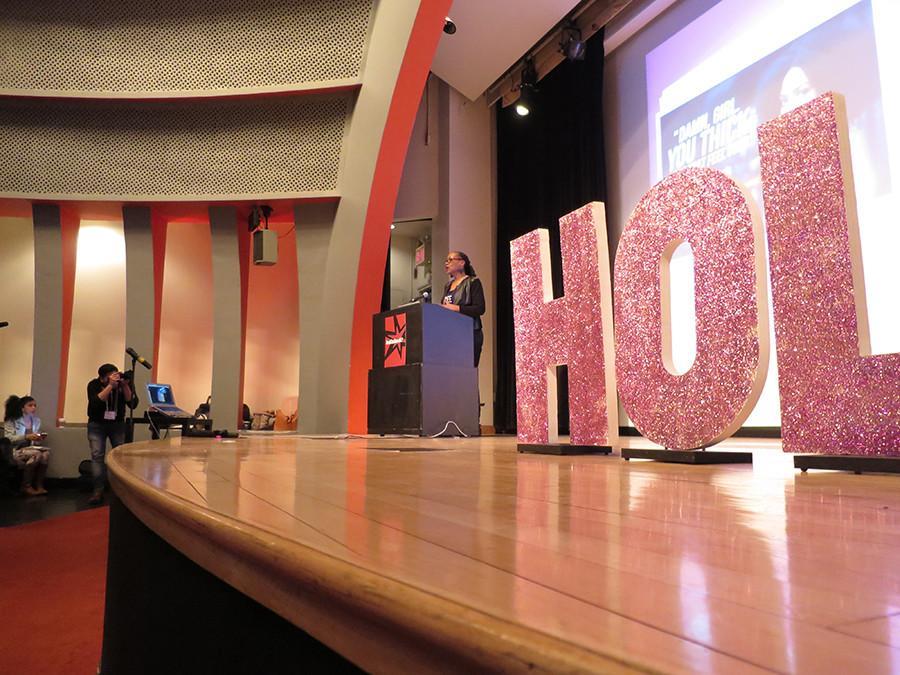Students speak out against catcalling
March 9, 2015
In an effort to end street harassment, Hollaback, an activist organization, hosted nine speakers for their HollaRevolution 2015 event at The New School on Thursday. Speakers shared their experiences, performances and advice about coping with
sexual harassment.
Deputy director of Hollaback Debjani Roy said the purpose of this event was to initiate conversation typically not had about this topic.
“We’re hoping to create a platform for people who are doing work in this area to talk about the ways in which they’re addressing street harassment,” Roy said.
Hollaback addressed street harassment, noting that while statistically women and girls face it more often, men are also burdened by harassment.
Muslim activist Linda Sarsour said the amount of clothing a woman is wearing does not warrant or excuse street harassment.
“Street harassment has nothing to do with what you’re wearing,” Sarsour said.
Feminista Jones, a mental health social worker, said women of color — particularly black women — tend to be harassed more often than white women.
“The problem in America is that we like to paint street harassment as being something that delicate white women experience at the hands of predator men of color,” Jones said. “I think that is not fair on two levels — one, there are other women that are in those experiences and girls as well, and two, it’s not fair to paint all men of color as being predators.”
Jones had her first experience of being street harassed when she was 11 years old, and cited that black girls ages 10 to 13 are oftentimes targets. Jones is now a blogger and activist fighting to educate youth on street harassment.
“Can we just make this a thing, like when you see something just say something?” Jones said.
Sarsour said bystanders have a responsibility to intervene during sexual harassment incidents.
“We have a responsibility to create the society that we want,” Sarsour said. “The way we address that is not by saying what the problem is — we know what the problem is. How are we integrating ourselves into what the solution is?”
Panelists agreed that victims should speak up for themselves, and this is something that audience member Lindsey Ellefson, 23, tries to do often.
“I actually do have this theory that I should make every incident a teaching moment,” Ellefson said. “And there’s been a couple times when I was too scared to turn it into a teaching moment, because you do hear those horror stories of women that get stabbed or get followed to their apartments so I wouldn’t advocate doing that if you really feel unsafe.”
A version of this article appeared in the Monday, March 9 print edition. Email Amanda Morris at [email protected].



























































































































































